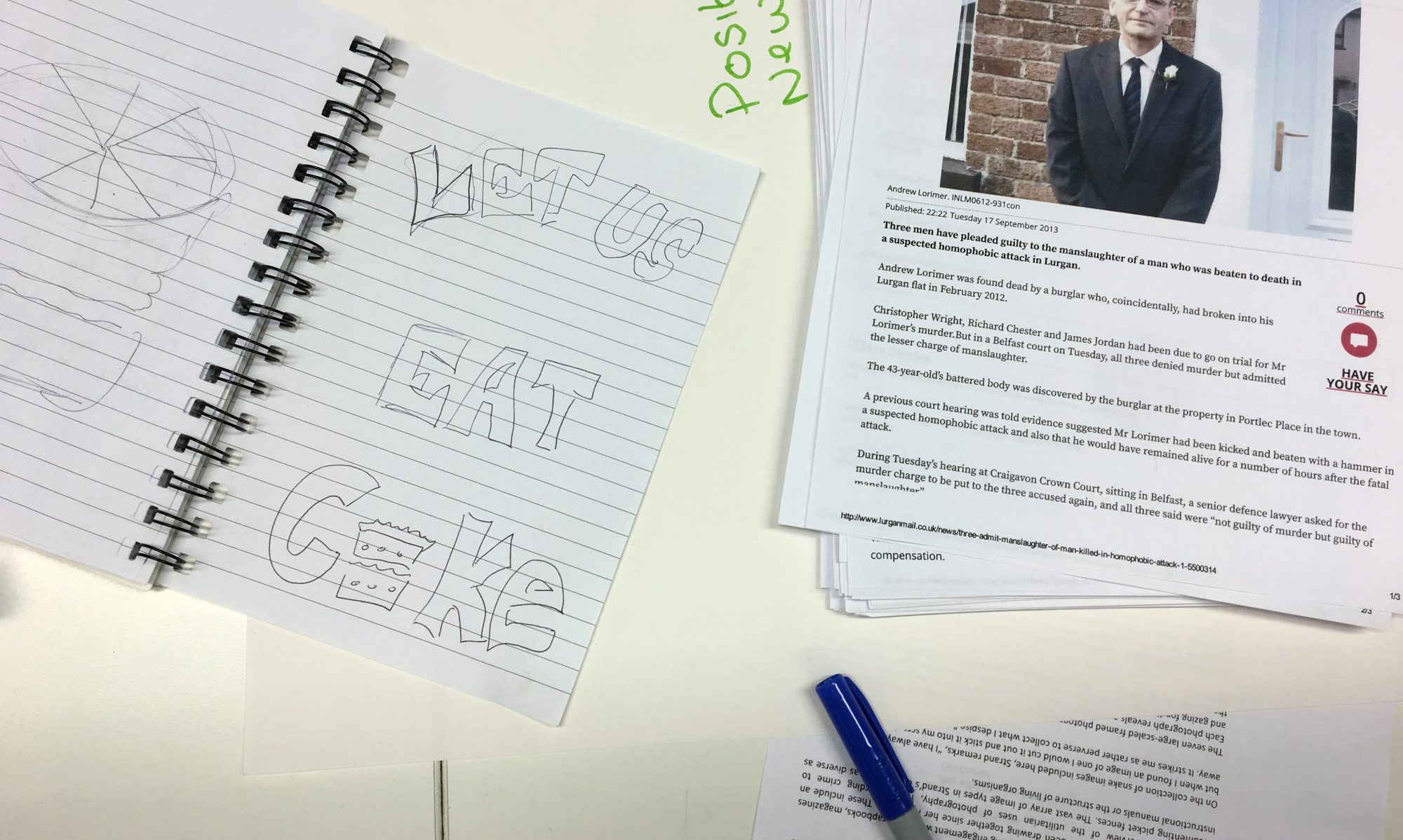Our thoughts about the word ‘queer’: It was interesting to hear how different people viewed and used the word. For me it always had negative connotations and had been used in the past as an insult when I’d showed a sensitive and open side to my personality. Queer was used to imply weakness, softness, girly characteristics in men, and strangeness. It was great to learn from the others how the word has been reclaimed and used for so much good for the LGBTQ+ community.
LGBTQ+ history: We each shared out thoughts on LBGTQ+ history, the good and the bad, people in power who had been vocal about their opinions on homosexuality, and the insults that have been used to describe gay people. ‘Repulsive’, ‘immoral’, ‘sinners’, ‘more likely to abuse children’, were only some of the views which have been expressed publicly and plastered over the media. It was interesting to think about how free speech can be dangerous in the wrong hands, how those who talk so much about their entitlement to free speech and other things, yet strive to withhold entitlements such as that for same sex couples to have a civil marriage. These points seemed to focus around politicians, particularly unionists – which I would classify myself as.
We visited the Ulster Museum to see an exhibit on LGBTQ+ people during The Troubles. It was great to see how some people bumped the trend and didn’t flee to more liberal countries across the water. Even more interesting was how religious divisions seemed less prominent within those communities who stayed. Being gay or lesbian actually brought people together, sexuality topping religion and encouraging acceptance. Perhaps there is a correlation between those who have suffered suppression and societal separatism or conflict along with being attacked for being gay, and those people being more accepting themselves. Therefore, it’s an interesting concept that we’re viewed by some as ‘monsters’, yet are kinder and more accepting of others, celebrate diversity and difference, and do more for society, particularly in terms of pioneering investing in mental health and sexual health.
We discussed how some LGBTQ+ opposers say the LGBTQ+ are too ‘loud’ and ‘in your face’. Which raises the question as to how we, as a minority, have our voices heard on issues we think important. There is an important need for a LGBTQ+ politician that’s actually in a position of power. Why are there no openly gay leaders? Are political parties scared to put forward a leader in case they are too charismatic, too fabulous, change things too much? Maybe they will ‘turn’ everyone gay, or force them to live homosexual ‘lifestyles’?
– Chris
